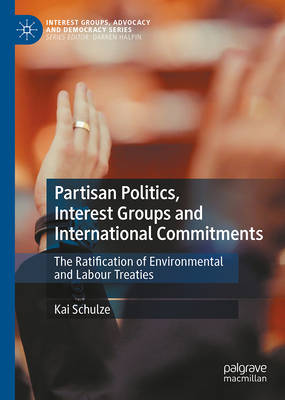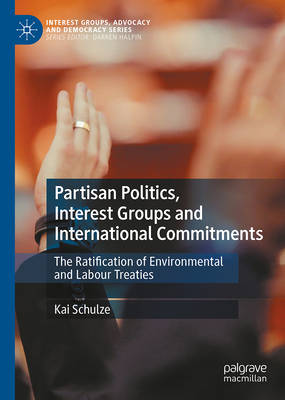
- Afhalen na 1 uur in een winkel met voorraad
- Gratis thuislevering in België vanaf € 30
- Ruim aanbod met 7 miljoen producten
- Afhalen na 1 uur in een winkel met voorraad
- Gratis thuislevering in België vanaf € 30
- Ruim aanbod met 7 miljoen producten
Partisan Politics, Interest Groups and International Commitments
The Ratification of Environmental and Labour Treaties
Kai SchulzeOmschrijving
International treaties and regulations have flourished over the past decades. But why are some industrialized countries more likely to ratify international treaties than others? And does domestic politics influence international commitments?
This book seeks to answer these questions by examining the patterns and determinants of international treaty ratification. Focusing on the policy areas of environmental protection and labor markets from the early-twentieth century to the present, it argues that domestic actors and partisan politics play a significant role in explaining variances in international treaty ratification, and that the international commitment of countries is heavily influenced by their domestic politico-economic characteristics, rather than their international political and economic linkages. These findings have important implications, as they highlight the ongoing importance of domestic constituencies in shaping international policy responses.
Specificaties
Betrokkenen
- Auteur(s):
- Uitgeverij:
Inhoud
- Taal:
- Engels
- Reeks:
Eigenschappen
- Productcode (EAN):
- 9783031999413
- Verschijningsdatum:
- 12/12/2025
- Uitvoering:
- Hardcover
- Formaat:
- Genaaid
- Afmetingen:
- 148 mm x 210 mm

Alleen bij Standaard Boekhandel
Beoordelingen
We publiceren alleen reviews die voldoen aan de voorwaarden voor reviews. Bekijk onze voorwaarden voor reviews.











